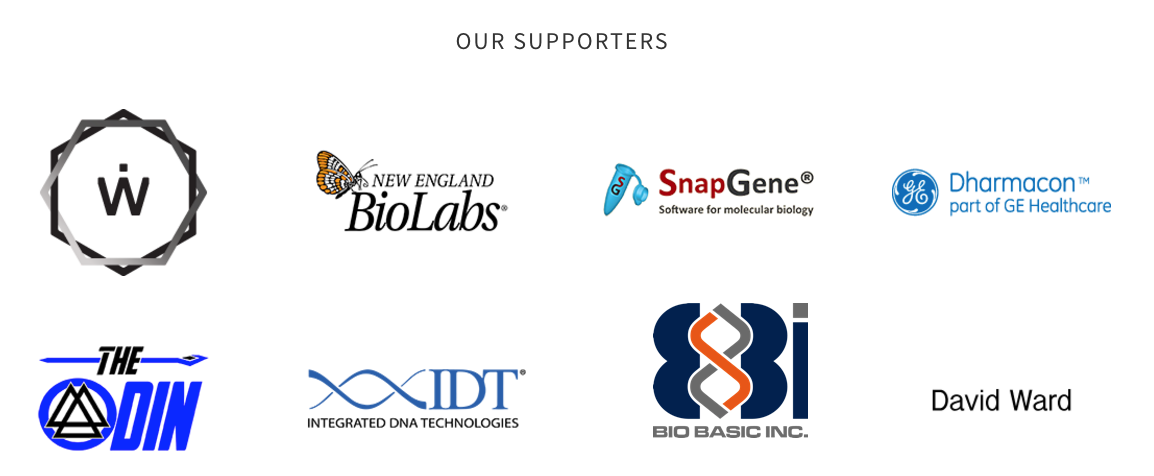| Line 7,905: | Line 7,905: | ||
its staff and faculty, and use of their prototyping equipment to build our hardware. Thank you! | its staff and faculty, and use of their prototyping equipment to build our hardware. Thank you! | ||
<br><br> | <br><br> | ||
| + | <img src="https://static.igem.org/mediawiki/2016/9/9d/Denver_Biolabs_sponsors.png" alt="Sponsors" style="max-width:100%; height:auto;" class="img-responsive center-block transp nuoli"> | ||
</p> | </p> | ||
</body> | </body> | ||
Revision as of 21:38, 19 October 2016

Attributions
Our team, including the PIs, are all volunteers and community members of Denver Biolabs.
All of the work presented at the Jamboree, on our wiki, and the work done in our lab was a
collaborative effort by all of our members.
The fluorimeter and optical density sensor we built was based on a design by the
2014 Aachen iGEM team.
We relied on the DIY receptor design instructions created by
TU-Delft's 2012 iGEM team.
We were inspired by a previous oxytocin project by
the Lethbridge Canada 2013 iGEM team .
We received their submitted oxytocin-neurophysin part from iGEM HQ and are working on
improving and refining it.
We want to thank the University of Colorado Boulder and Colorado State University 2016
iGEM teams for helping us with our Jamboree presentation, providing us with a solid protocol
for CaCl2 competent cells, and sending us some DNA samples to experiment with producing
our own enzymes.
We also want to thank the Phiel Lab at the University of Colorado Denver for
supporting us with some consumables, the use of their nanodrop, and allowing us to
use their fluorimeter to calibrate our DIY version.
Finally, we owe a huge thanks to the generosity of our sponsors: IDT, New England Biolabs,
SnapGene, Dharmacon part of GE Healthcare, The ODIN, and Inworks. A special thanks goes to Inworks
in particular for housing the Denver Biolabs lab, providing the mentorship of
its staff and faculty, and use of their prototyping equipment to build our hardware. Thank you!


